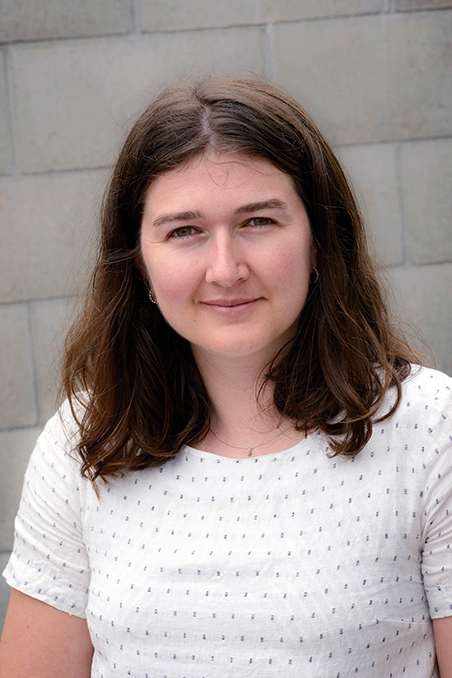Becoming a parent is a major life event, but while exciting, it carries a proven heightened risk of poorer mental health outcomes for mothers.
Now researchers at the University of Otago, Christchurch, suggest there is a clear protective link between paid parental leave and maternal mental health after a woman gives birth.

Dr Kate Eggleston.
An editorial in this week’s New Zealand Medical Journal (NZMJ) summarises research on the topic globally, specifically a recent systematic review of parental leave and maternal mental health outcomes published in the prestigious international journal Lancet Public Health.
Co-author of the NZMJ editorial Dr Kate Eggleston, a senior lecturer in the campus’s Department of Psychological Medicine, says research related to paid parental leave is timely for Aotearoa, with both major political parties having released policies related to paid partner parental leave prior to the election.
“The postpartum period can be an intensely stressful time for parents,” Dr Eggleston says.
“In addition to the physical recovery and hormonal changes experienced by mothers, both parents face emotional, psychological, financial, and practical challenges during the transition to parenthood, which may contribute to perinatal depression and anxiety.
“The most interesting finding is that unpaid leave does not appear to be associated with the same mental health benefits as paid leave,” Dr Eggleston says.
The Lancet review, which included 45 studies in high income countries, found that parental leave was protective against poorer mental health outcomes for mothers, especially paid leave lasting at least two to three months. Specifically, paid leave reduced the risk of depressive symptoms, anxiety, and burnout.
Postpartum depression rates in Aotearoa are high – studies have reported rates of between 5–14 per cent.
Of additional concern, New Zealand has a high rate of maternal suicide, with rates around six times higher than in the United Kingdom. This appears to be driven by significant inequity where pregnant and postpartum wāhine Māori are more than three times more likely to die by suicide than New Zealand European women.
“These worrying outcomes make it clear Aotearoa needs strong policy to support and improve wellbeing in the postpartum period,” Dr Eggleston says.
The Lancet review also suggested partners’ leave has a positive effect on the mental health of mothers, with the mother experiencing fewer depressive symptoms when their partner was able to stay home to provide support.
“This is timely, as New Zealand is currently one of only three OECD countries that offers no paid partner leave,” Dr Eggleston says.
Both major political parties in Aotearoa announced new policies regarding paid parental leave several months ago, with National proposing a bill to allow parents to share their leave entitlement, meaning they could take time off together. That bill was voted down, but several weeks later Labour announced a new Paid Partner’s Leave policy. Partners would be eligible for increasing amounts of paid leave over the next three years, culminating in four weeks paid leave by 2026, taken either concurrently or consecutively with the primary caregiver.
“It’s heartening that both parties have been considering how to improve support for the primary caregiver by allowing the option of their partner to remain home. We already know postpartum depression among New Zealand fathers is reported at between four to 12 per cent, so policies to support fathers and the whānau as a whole are essential. We hope the incoming government will add momentum to the issue,” Dr Eggleston says.
As well as the positive effects on parents, the editorial authors say there is review evidence that paid parental leave is also associated with improved infant and child health, including reduced mortality in the first five years of life.
“One recent study demonstrated that paid maternity leave had a positive effect on a child’s cognitive, behavioural, and socioemotional abilities. There’s also preliminary evidence that increased length of maternity leave is linked to higher quality mother-child interactions, with indirect effects on attachment security,” Dr Eggleston says.
The authors stress any new government policy which is implemented needs to be evaluated, to determine whether the changes have been effective in providing families with additional support, or whether more still needs to be done.
Publication details
Mental health and paid parental leave – what does the evidence say?
Kate Eggleston, Katie Douglas, Katherine Donovan, Matthew Tennant, Roger Mulder
New Zealand Medical Journal
For more information, please contact:
Dr Kate Eggleston
Department of Psychological Medicine, University of Otago, Christchurch
Email kate.eggleston@otago.ac.nz
Lorelei Mason
Communications Adviser, University of Otago, Christchurch
Email lorelei.mason@otago.ac.nz
Mob +64 21 555 024